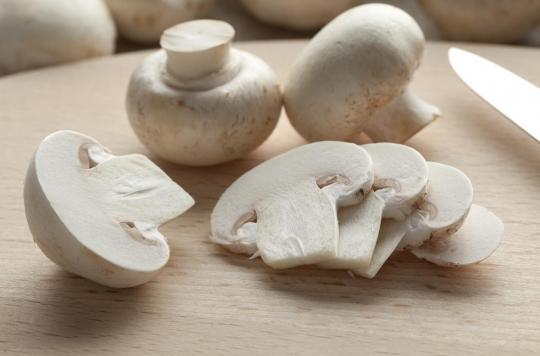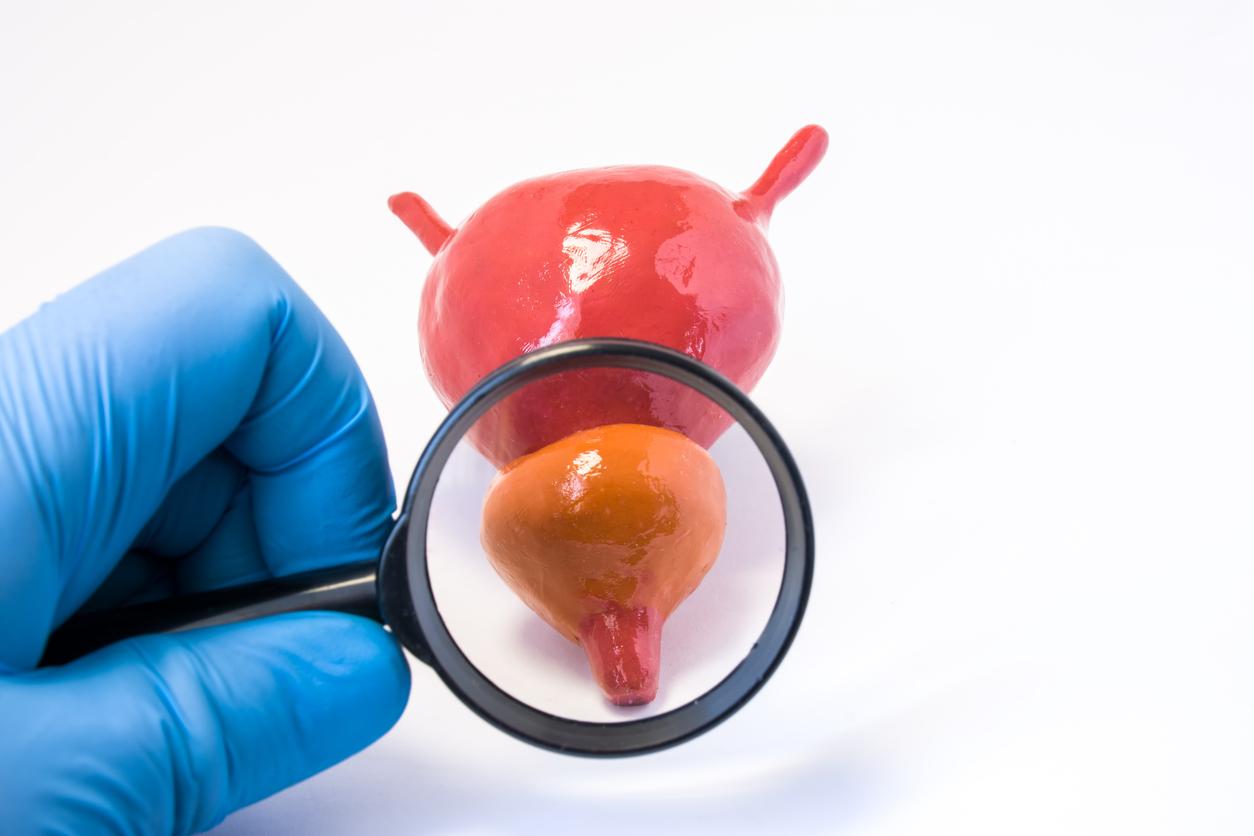A study conducted on mice shows that certain substances contained in button mushrooms can suppress the activity of androgen receptors, a protein that is involved in the development of prostate cancer.

- Conducted on mice, the study presented at ENDO 2021 shows that a compound from button mushrooms suppressed the activity of androgen receptors, decreased the growth of prostate tumors, as well as blood levels of prostate-specific antigen (PSA).
With 50,403 new cases in 2015 in metropolitan France and an estimated 8,115 deaths in 2018, prostate cancer is most common in men over 50.
The prostate is continuously subjected to the action of male sex hormones, androgens (including testosterone). These androgens are necessary for the normal growth and functioning of the prostate. But these hormones can also cause prostate cancer when they bind to androgen receptors (ARs) and then activate them. Androgen receptors are proteins produced by prostate cells. Once these receptors are bound to androgens, they can stimulate the expression of certain genes that lead to the growth of malignant prostate cells.
But, according to a new study conducted by the Beckman Research Institute of City of Hope, a cancer center in California, button mushrooms can suppress androgen receptor activity, and therefore slow cancer progression from prostate. The study was presented virtually at ENDO 2021, the annual meeting of the Endocrine Society.
A decrease in prostate-specific antigen levels
Researcher Shiuan Chen, lead author of the study, previously conducted a Phase 1 clinical trial in which he tested the effectiveness of button mushroom powder in patients with recurrent prostate cancer. The results indicated that the mushrooms reduced prostate-specific antigen (PSA) levels in the blood, with minimal side effects. Increased PSA in the blood in men may indicate the existence of prostate tumors.
This new work aims to understand the mechanism behind this discovery. This time, the research team investigated the effect of mushroom extract on androgen-sensitive prostate cancer cells. For this, she used mice in which human prostate tumors had been implanted. This process makes it possible to create an animal model whose results will be more reliable when applying the research to human clinical trials.
Slowing of tumor growth
Researchers found that in prostate cancer cells, button mushroom extract suppressed androgen receptor activity. They also found that in mice treated for six days with button mushroom extract, prostate tumor growth was significantly slowed and PSA levels decreased.
“We found that button mushrooms contain chemicals capable of blocking androgen receptor activity in mouse models, indicating that this mushroom can reduce PSA levels, says Professor Wang, co-author of the study. Although more research is needed, it is possible that button mushrooms may one day aid in the prevention and treatment of prostate cancer.”

.















